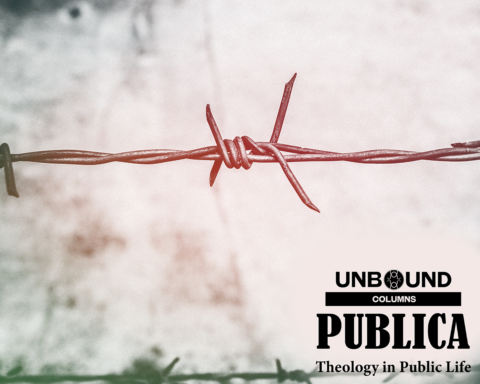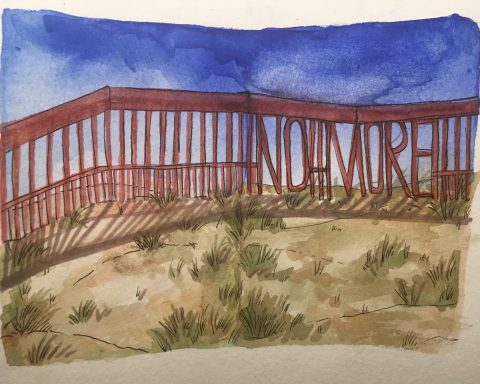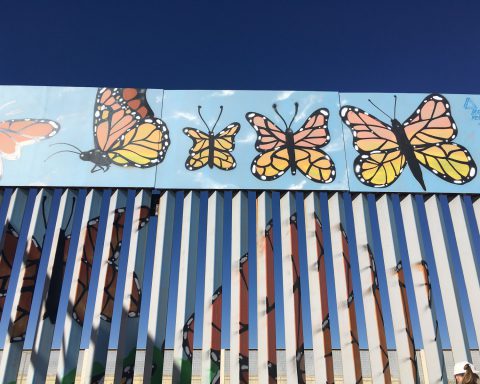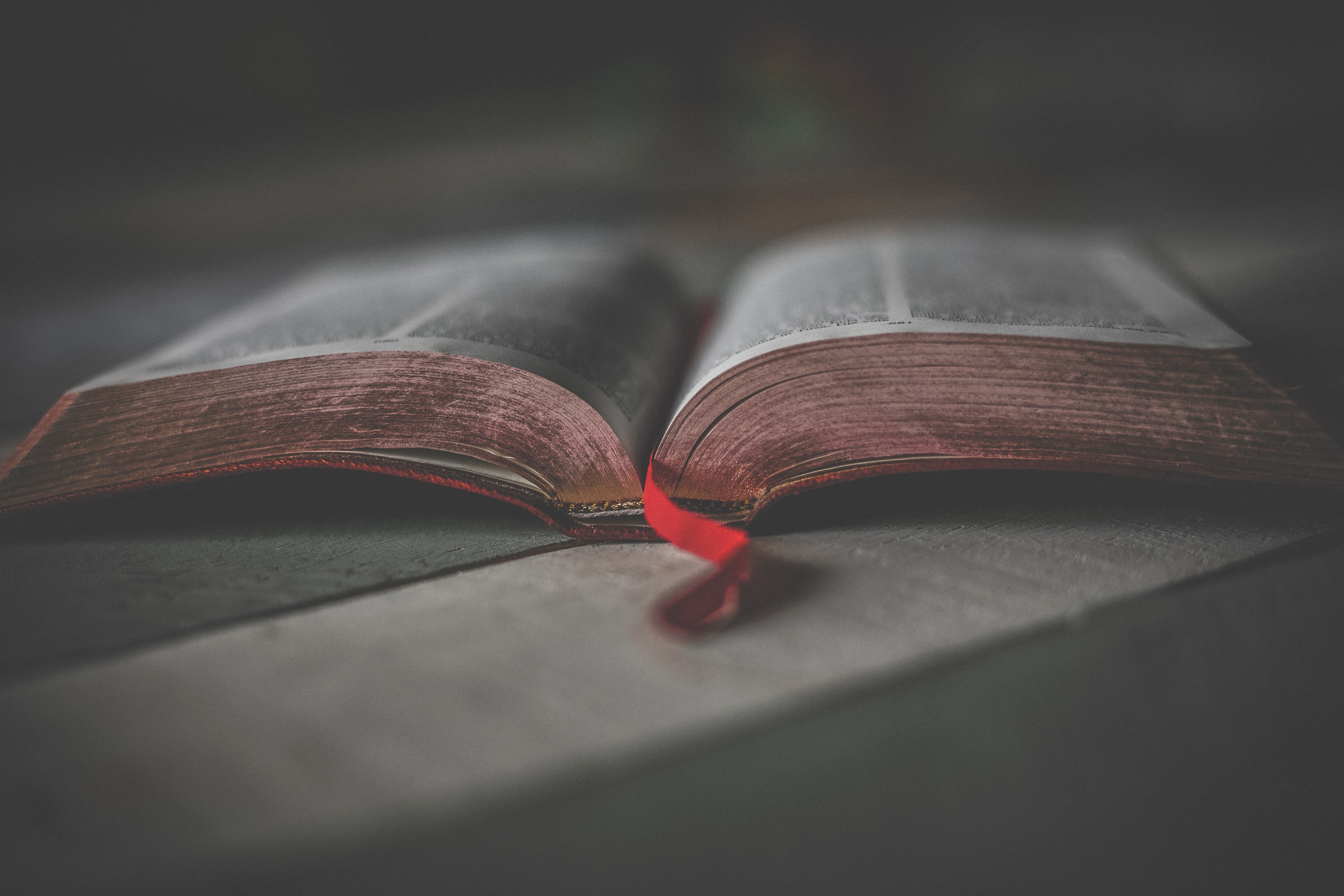A Pastoral Response to the Migrant Caravan

I’ve been watching reports of the migrant caravan from Central America, awestruck by the grit and determination of those refugees. What is it like to leave your home and walk for weeks to a place you’ve never seen, not knowing if you will be welcomed…or turned away…or worse?
My grandfather was born in Glasgow, Scotland, to an Irish mother and a Welsh father. When his parents died of tuberculosis, he was raised in a group home run by the Presbyterian Church. At age eleven, he was sent to Ontario to work on a farm. Eventually, he made his way to Toronto and studied theology, then wandered down into the US and worked as an itinerant preacher. At age 49 he finally married my grandmother, settled in Gary, Indiana, and ministered to the indigent population there. My grandmother, a child of German immigrants, ran a boarding house to make ends meet. Together, they had two daughters and eleven grandchildren, including a professor, a lawyer, a speech-language pathologist, a social worker, a special-ed teacher, a carpenter, an engineer, and three pastors. The family now includes 19 great-grandchildren and 5 great-great grandchildren. It’s clear to me that the hospitality shown to my grandfather has been paid back many times.
___________________________________________
Who knows what would have happened to my grandfather if he hadn’t been taken in by the church? How might he have fared if he hadn’t been welcomed by a new country, first in Canada, and then in the US?
___________________________________________
His story is not unusual. Studies have shown, over and over, the positive economic and social effects of immigration in the US. The idea that immigrants “take jobs away from real Americans” is simply not true. Immigrants strengthen our union and broaden our understanding of what it means to be American. How easily we forget that most of us are descended from immigrants ourselves!
Who knows what would have happened to my grandfather if he hadn’t been taken in by the church? How might he have fared if he hadn’t been welcomed by a new country, first in Canada, and then in the US?
At our best, this nation-of-many-nations has been a safe haven for people fleeing oppression, disease, religious persecution, and economic hardship; a gathering place for folks of many backgrounds; a model of creative thought; and a champion of democratic values. At our worst, we have been a people who devastated Native Americans, brutalized African slaves, stigmatized the Italians and the Irish, interned the Japanese, demeaned non-Christians, and marginalized people of color from many backgrounds.

and the home of the brave” will make a place for them—I wonder, who are we now? What kind of people have we become? Can we be, once
again, a place of welcome to orphans and widows, a land of opportunity, a standard-setter in health care and education and science, a mosaic of rich cultures? Will we say again, in the words of Emma Lazarus: “Give me your tired, your poor, your huddled masses yearning to breathe free!”
Here’s my challenge to people of faith and people of conscience in this country: what if each congregation were to work with other neighbors to sponsor a family in the caravan?
A quick Google search gave me a rough estimate that there are 350,000 houses of worship in the US. A little over 7,000 people have joined the migrant caravan, but as of October 26 that number was down to 3,500, according to NPR. We don’t know how many will make it to the border—probably fewer than this number—but assume that 3,500 people make it and ask to enter. It would take less than 1% of all US congregations to sponsor them as families. Small congregations could partner with one another, or with civic groups. Mega-churches could sponsor multiple families.
This would completely change the conversation about people seeking to enter this country.
Someone would have to learn Spanish, someone would have to find housing, someone would have to teach English, someone would have to connect the kids with schools, someone would have to set the adults up with employment and transportation, someone would have to fill out the forms to ensure legal residency, someone might apply for grants.
___________________________________________
[W]hat if each congregation were to work with other neighbors to sponsor a family in the caravan? [….] This would completely change the conversation about people seeking to enter this country.
___________________________________________
Perhaps the most difficult task would be for us to swallow our fear of the stranger, to put down our prejudice against folks who look a little different, and to see each other as, well, just people. There would be work to do! But think of the benefits to our communities: a project to tackle together, new friends and new ideas to explore, gifts shared and received, a boost of brainpower and synergy, new citizens grateful and loyal and giving back to their adopted country.
So, to all the rabbis, imams, pastors, judicatory heads, and people in the pews, to all the mayors, book clubs, neighborhood groups and civic leaders and grandparents out there: start talking about this in your communities. Gather your local interfaith group and make a proposal. Talk it up at the Rotary Club. Put it out on social media and see what happens. If it seems too daunting, start by volunteering at your nearest refugee center.
Perhaps we can make America kind and hope-filled and good again.
[1] Photo by Elcobbola [Public domain or CC BY-SA 3.0], from Wikimedia Commons.
***
Author Bio: Rev. Martha Koenig Stone is an ordained UCC pastor who has served local churches for 25 years, currently serving at Henrietta United Church of Christ, near Rochester, NY. She chairs the NY Conference UCC Commission on Ecumenical and Interfaith Relations, and co-chairs the UEK Forum, a denominational task force that attends to the UCC’s partnership with the Protestant church in Germany. A former foreign-language teacher, she is passionate about work that brings together people of varied ages and backgrounds. She is the mom of three amazing and committed young millennials and one adorable dachshund, and lives in Brighton, NY with husband Randy.






Unbound Social